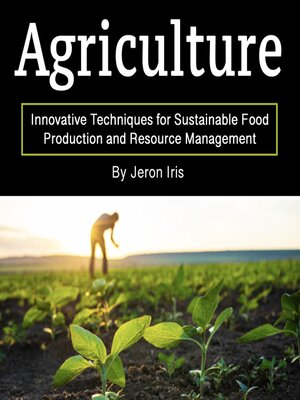Agriculture
audiobook (Unabridged) ∣ Innovative Techniques for Sustainable Food Production and Resource Management
By Jeron Iris

Sign up to save your library
With an OverDrive account, you can save your favorite libraries for at-a-glance information about availability. Find out more about OverDrive accounts.
Find this title in Libby, the library reading app by OverDrive.



Search for a digital library with this title
Title found at these libraries:
| Library Name | Distance |
|---|---|
| Loading... |
Agriculture stands at the heart of human civilization, sustaining populations, economies, and ecosystems around the globe. As the primary source of food and materials for countless industries, agriculture is fundamental to our daily lives. Yet, as demand for food and resources grows, traditional farming practices have come under scrutiny for their impact on land, water, and ecosystems. This situation has sparked a profound exploration into how agriculture can evolve to meet future needs without compromising environmental health or resource availability.
In response to these challenges, sustainable agriculture has emerged as a guiding framework. Rather than depleting resources, sustainable agriculture seeks to work in harmony with nature, fostering productive systems that can endure and even improve over time. Key principles include conserving soil health, managing water resources responsibly, reducing reliance on chemical inputs, and promoting biodiversity. Sustainable agriculture not only aims to enhance the resilience of farming systems but also to address some of the long-standing issues in conventional agriculture, from soil degradation to pest resistance.
Advancements in technology and innovative farming practices play an essential role in this shift. Techniques such as precision farming, vertical agriculture, and renewable energy integration are now helping farmers produce more with less environmental impact. By adopting these methods, we can begin to build a resilient food system capable of withstanding fluctuations in demand and environmental pressures.







